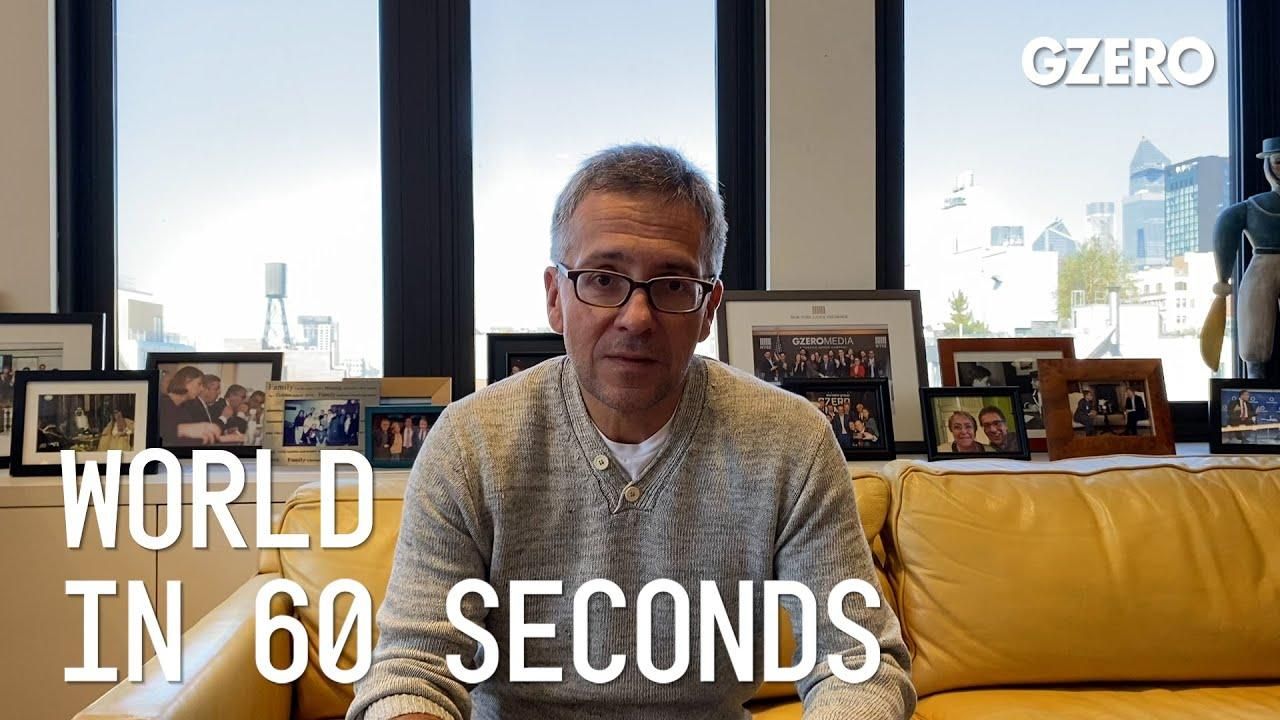Ian Bremmer shares his insights on global politics this week on World In 60 Seconds.
Will China's Communist Party Congress be a game changer?
I wouldn't call it a game changer, but I think there are a lot of people out there that are hoping that there's going to be loosening of the zero-COVID policy. They're hoping that there's going to be more of an opening in terms of state control of financial institutions and technology, sort of state-owned enterprises after Xi Jinping gets his third term. I see no reason to believe that. If anything, there's more consolidation of power. There are more loyalists around him and top party positions, and as a consequence, he can do more of what he wants, which is what we've been seeing over the last few years. So I think it's actually going to be a lot more consistency as opposed to a game changer, but that's my view.
As the 60th anniversary of the Cuban Missile Crisis approaches, how should the world react to this new nuclear threat from Putin?
Yeah. Well, I wasn't around, of course, for the first Cuban Missile Crisis, and I kind of hope that I won't be around for the second. I'd like to avoid it. I recognize this is dangerous. I don't like all the talk about nuclear weapons potentially being used. We should take it seriously, but we should not in any way overestimate the likelihood. We need to recognize that Putin using a nuke would be existentially a risk for him, both in terms of ordering it to get done internally, whether that line of command would actually work, and also, of course, what the external reaction would be. I think we're still very far from that, but I recognize it's a possibility, a plausibility in a way that it wasn't even a few months ago. And of course, that's very deeply disturbing.
With oil workers striking, is Iran on the cusp of another revolution?
Well, of course we saw some of that during the last Iranian revolution. It's dangerous. It would affect their economy. The Iranian government is going to need to go in and crack a lot of heads, but then they're also going to need to provide some support for the Iranian people that creates more sustainability, more willingness to actually accept a conservative theocratic rule. It's becoming harder, but let's not undermine the fact that surveillance mechanisms, big data technology, also makes it easier for authoritarians to stay in power. I'm still skeptical that what we're seeing here is a revolution and the end of the Iranian government as it is presently, but there's no question this is a big threat to them. We're going to watch it very carefully.
More For You
Global conflict was at a record high in 2025, will 2026 be more peaceful? Ian Bremmer talks with CNN’s Clarissa Ward and Comfort Ero of the International Crisis Group on the GZERO World Podcast.
Most Popular
Think you know what's going on around the world? Here's your chance to prove it.
Indian Prime Minister Narendra Modi isn’t necessarily known as the greatest friend of Muslim people, yet his own government is now seeking to build bridges with Afghanistan’s Islamist leaders, the Taliban.
The European Union just pulled off something that, a year ago, seemed politically impossible: it froze $247 billion in Russian central bank assets indefinitely, stripping the Kremlin of one of its most reliable pressure points.
